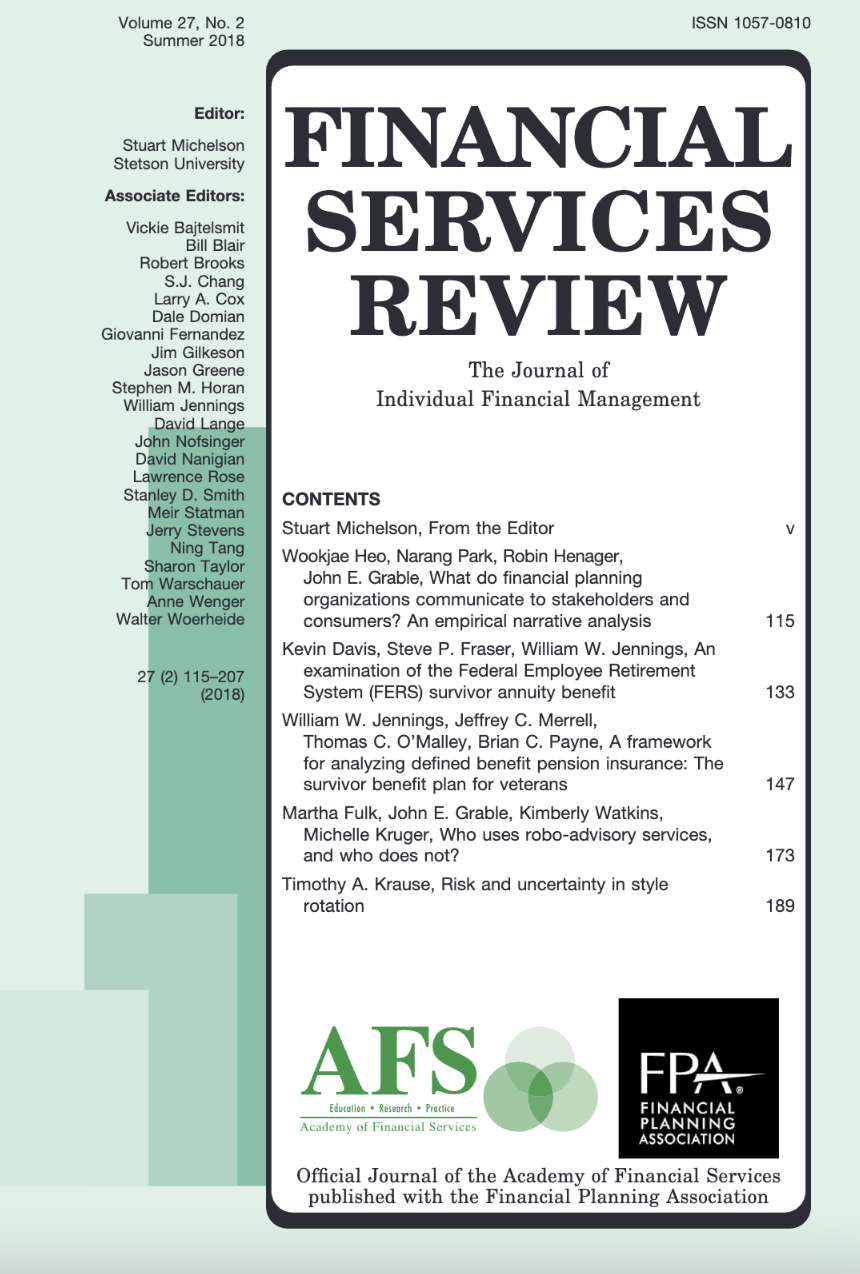Who uses robo-advisory services, and who does not?
DOI:
https://doi.org/10.61190/fsr.v27i2.3390Keywords:
Robo-advisor, Robo-advisory services, Financial planner, Financial planningAbstract
The purpose of this study was to compare the demographic, attitudinal, and behavioral character- istics of U.S. consumers in their current and expected use of robo-advisory services, traditional financial planning services, or a combination of the two services. Findings showed a difference between those who used robo-advisory services and those who used traditional financial planning services. Overall, those who used a traditional financial planner were older and reported higher levels of net worth, while users of robo-advisors, on average, reported lower levels of net worth. In addition, those who used traditional financial planning services reported a larger percentage of their total net worth from an inheritance, whereas a lower percentage of net worth from an inheritance was reported by robo-advisor users. Results showed that users of robo-advisory services generally (1) had lower income, (2) had lower net worth, (3) had received no or less inheritance, and (4) were less impulsive financially.
Downloads
Published
How to Cite
Issue
Section
License
Copyright (c) 2018 Academy of Financial Services

This work is licensed under a Creative Commons Attribution-NonCommercial 4.0 International License.
Author(s) retain copyright and grant the Journal right of first publication with the work simultaneously licensed under a Creative Commons Attribution-NonCommercial 4.0 International License that allows to share the work with an acknowledgment of the work's authorship and initial publication in this Journal.
This license allows the author to remix, tweak, and build upon the original work non-commercially. The new work(s) must be non-commercial and acknowledge the original work.


